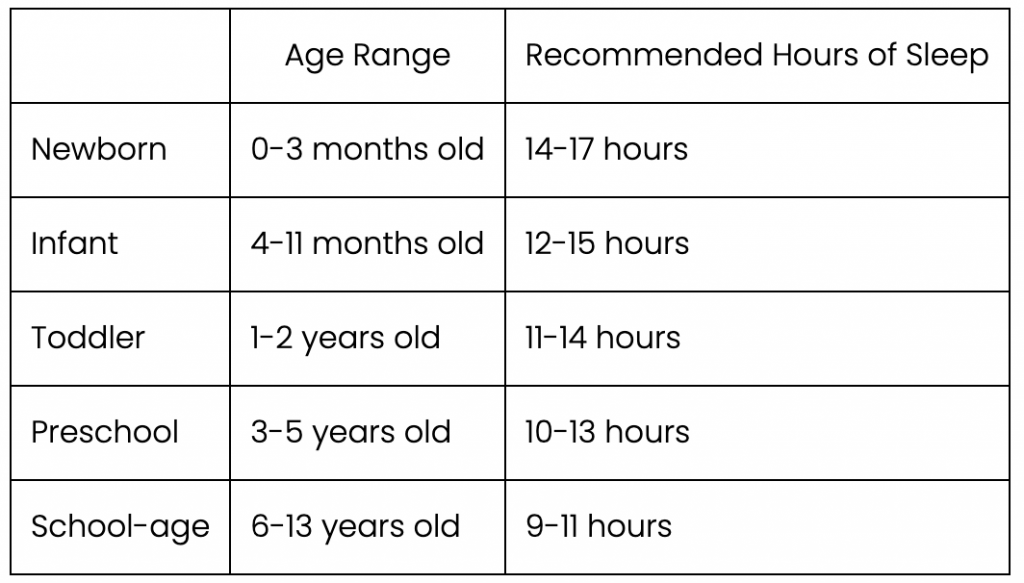Many parents struggle with their child’s attention span. It can be hard to get your child to pay attention and sit still at school or home. This is especially true for children with attention deficit hyperactivity disorder (ADHD) symptoms or attention deficit disorder (ADD). Sometimes it can feel like they seem never to stop moving. It is essential to keep in mind that a short attention span in children is a normal part of growing up. Kids can become easily distracted by new and exciting things.
Thankfully, there are some things that you can do to help manage your child’s focus and decrease hyperactive-impulsive behavior. For example, a pediatric chiropractor may help improve their ability to stay seated while working on homework or in the classroom. This article will provide tips for parents on dealing with hyperactivity and attention deficit. Learn ways to improve your child’s attention span so they can stay focused longer in school and at home.
Table of Contents
Your Child’s Attention Span & Why It’s So Short
Typically, attention span refers to how long a person can focus on something. It can also include how much time they can spend on a task before the brain needs to take a break. Everyone gets distracted sometimes, but those with short attention spans may have trouble when it comes to focusing and staying engaged in conversations. A child’s ability to focus is much shorter than an adult. A child often has a very short attention span, making it difficult for them to complete tasks that adults find simple. ADHD or ADD may cause this short attention span and the inability to sit still, but in many cases, these symptoms are simply part of normal childhood development.
Is it Attention Deficit Hyperactivity Disorder (ADHD) or Normal Development?
Sometimes it can be hard to tell if your child’s attention span (or lack thereof) is a normal part of development or if your child may have ADHD. The younger children are, the more inattentive they tend to be. This is because their brains are still in a rapid developmental state, and their lack of impulse control can affect their behavior and ability to pay attention.
Most doctors will not diagnose attention deficit hyperactivity disorder until at least age four. Suppose your child is still having significant difficulty with behavior control and impulsive actions by this age. In that case, you may consider consulting their doctor and asking about the signs and symptoms of ADHD.
The tips below are helpful for all children, but it is important to note that children with ADHD may need additional resources and treatment to control their attention spans. It is crucial for the mental health of children with ADHD that they are correctly diagnosed and receive appropriate care for their impulsivity and other symptoms.
Tips for Addressing Attention Issues
If you feel that your kids are having issues with staying attentive or sitting still, there are things you can do as a parent to assist your child through this challenging developmental time. It’s essential to be patient and keep in mind that children are still learning about the world around them.
A good rule of thumb to set expectations is that kids should pay attention and stay engaged with a task for as many minutes as they are years old. For example, a 5-year-old should be able to remain engaged in the same task for about five minutes before you need to change things up.
There are several strategies that parents can utilize to help children stay focused. In this article, we’ll cover a few of the most significant ones.
Tip # 1: Make sure your child is getting plenty of sleep.
Adequate sleep is vital for both children and adults. Children’s ability to stay focused is very closely related to how well they sleep. When kids don’t get enough rest, it can hurt their overall health and ability to stay focused. Lack of sleep may make it difficult to still during the day, even if they’re not tired when you send them off to school in the morning. Try setting your child’s bedtime 45 minutes earlier than usual for at least a week and see if you notice a difference in their ability to focus.
The National Sleep Foundation suggests that toddlers and preschool-aged kids get between 10 and 14 hours of sleep per night. The chart below breaks down recommended hours of sleep by age.
Photo credit: The National Sleep Foundation
Tip # 2: Avoid overstimulating your child with too many toys and activities.
Sometimes, your child may have trouble focusing because they are overstimulated, and their brain is trying to process too much information at once. If your child has too many toys, it can be hard to focus on just one. The same is true if you try to do several family activities with them in one afternoon. Instead of buying more toys or signing up for additional extracurricular classes, see if there are strategies you could use to reduce your kid’s playtime during the day. This may mean setting aside certain toys once in a while (or limiting how often they get a new toy), but it will help improve concentration and attention span.
It might also be helpful to find an activity where your child may engage in sensory play; keep reading below for some ideas.
Tip # 3 Provide a specific task to focus on.
One of the best ways for children to learn to focus is by giving them specific tasks that they can work on while sitting in the classroom or at home. This could be anything from coloring, building with blocks or Legos, or drawing pictures; the possibilities are endless. Sensory activities are child-friendly and fun. You’ll find it’s much easier to keep your child focused and engaged in whatever you’re doing together.
You can also consider signing your kids up for a specific sensory skills class. For example, a music class will help children learn how different sounds affect one another. By learning how to play instruments and sing, they’ll set a specific rhythm for themselves that will help them stay still longer. This is also true of art lessons; child-friendly paint or crayons may keep your child’s focus long enough for you both to finish an activity together. Schools may offer some of these activities, so check with your child’s teacher if they are reporting behavioral issues. Engaging them in these types of activities can help your child process emotions and put their energy into something positive.
Tip # 4 Establish a quiet zone in your home or at school.
Creating a quiet area in the house or school where your kids can relax and engage with their senses is an excellent way for them to center themselves. If there is enough space, this could be as simple as turning a corner of the living room into a reading nook or putting up curtains around it to have fewer distractions.
For teachers, choose a corner of the classroom to designate as a quiet area where you can place books or relaxing activities for the students to engage in. This will help students process emotions and stay focused throughout the day.
Tip # 5 Set a time to turn off electronics.
You already know that it’s vital that your child gets plenty of rest every night. If they spend too much time in front of screens before bed (TV, cell phone, tablet, computer, etc.), it can interfere with regular sleep patterns and create an overstimulated sensory system. Blue light, which is emitted from electronic screens, is directly related to the circadian rhythm, which is what helps your body know when to go to sleep.
If you find that your child has trouble winding down at the end of the day, consider putting all devices like tablets or phones into “sleep mode” so they don’t stay up late staring at them. This will make sure their brain is ready for rest by the time they go to sleep each night; as a bonus, it will help improve concentration during waking hours since children who get enough rest have more energy and can focus better overall than those who aren’t rested.
Tip # 6 Encourage physical activity.
To keep a child’s attention focused, your child must get enough physical activity and movement throughout the day. If they spend too much time sitting still or just staring at screens, this can cause them to have difficulty paying attention. By encouraging physical activity instead, you’ll be giving your child the opportunity for some exercise while also helping improve their concentration levels. Physical activity at school and home will help tire out their body and mind and enhance the quality of rest each night.
Many parents struggle to find outlets for physical activity during extreme weather, and children are unable to get outside—when there’s a heat advisory, several feet of snow, or lots of rain or storms. If you have a recreational center or YMCA near you, you may be able to receive a family or student discount so your child can spend time playing indoors on those days when they can’t get outside.
Tip # 7 Call a pediatric chiropractor, like Dr. Eric of ADIO Chiropractic in Middleton, WI to help reduce tension.
One of the best ways to help your child deal with their attention issue is by taking them to a pediatric chiropractor for regular adjustments. Whether visiting weekly or two times per month, experienced chiropractors can work on aligning the child’s spine to help them grow properly. Chiropractic care can be beneficial to a child of any age, and there are even specific adjustments that are appropriate for babies.
Chiropractic care may help reduce tension or stress in children’s bodies. In addition, a chiropractor is able to make minor adjustments as needed during each visit. Much of what happens during a child’s adjustment can help improve a child’s attention span and behavioral issues.
The Bottom Line
Let’s face it. Parenting can be challenging with children of all ages, but those first few years where your kids are growing rapidly can be especially difficult. Whether your child is showing symptoms of ADHD or you are simply dealing with age-appropriate hyperactive behavior, there are many things you can do as a parent to help your child focus and follow directions.
Follow the tips in this article to help your child instill healthy habits that will increase their attention span and their ability to control impulses. Ensuring adequate sleep, getting proper a diagnosis and treatment for ADHD, playing games that are physically engaging, and seeing a pediatric chiropractor at ADIO Chiropractic in Middleton, WI are all great ways to help reduce hyperactive and impulsive behaviors.
You can read more information about ADHD in an earlier blog here: https://adiowi.com/2021/01/12/adhd-and-behavior-issues/
Schedule an Appointment with Dr. Eric Today!
Call (608) 824-0950 or fill out this simple form to schedule an appointment. ADIO Chiropractic is located on North Gammon Road in Middleton, Wisconsin. Dr. Eric works with families from all over the Madison area.





